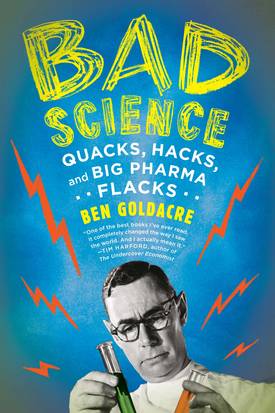
I'd highly recommend "Bad Science" by Ben Goldacre for anyone interested in the basics of the scientific method.
Goldacre uses examples from medicine and homeopathy to explain how "scientific" conclusions are made. Chapters on "placebo effects" and basic understanding of how to set up research paradigms to get at accurate and specific conclusions. He does a good job explaining non-random sampling, problems with convenience sampling and how to assess research protocols without making the research seem "magical" - it comes across as common sense (which it should) and points out common areas where simple shortcuts (e.g. sampling) cause big problems later on.
I'd recommend this book, or chapters therein for anyone teaching or taking basic research method courses, elementary statistics or with any field of study with a research component.
Very easy to read, and the examples are very clear, and used consistently for entire chapters. Probably not the primary text for courses, but an excellent ancillary text.
Chapter 11 is quite interesting, as it talks about different ways to fake/hide research, some of which are not immediately apparent, such as using too high or too low a dose of competing medications (too high- high prevalence of side-effects, too low - curative effect seems weak); letting patients withdraw without much fanfare (clients who try to drop out of trials are generally having difficulty, so "losing" them makes the remainder more likely to have an effect); checking random baseline effects between "control" and "experimental" groups - "keep" the difference if it is in the good direction, "correct" it if it is in the "bad" direction; along with typical data mining, post-hoc data playing (e.g. looking for sub-groups who are showing an effect, using inappropriate stats, ignoring significance completely).
No comments:
Post a Comment